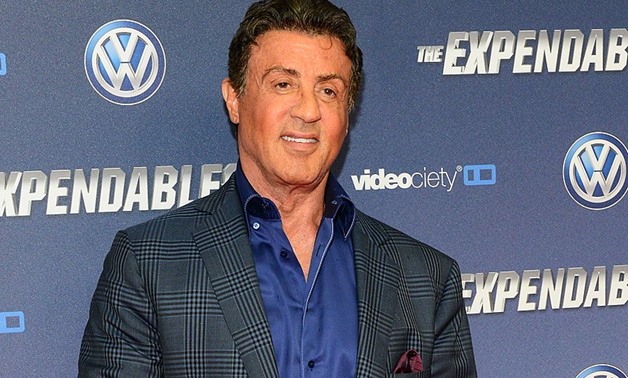
Sylvester Stallone at the German premiere of "The Expendables 3" at Residenz cinema, August 6, 2014 - Michael Schilling/Wikimedia Commons
CAIRO – 21 February 2018: Sylvester Stallone, famed "Rocky" star, isn't out of the ring just yet.
The actor has confirmed that rumors of his death on social media have been falsified, through an Instagram post where he told fans to "Please ignore this stupidity… Alive and well and happy and healthy… Still punching!"
[
]
Stallone's younger brother, Frank Stallone, also went on social media to disconfirm the news. In his twitter Twitter post, he wrote that he is "very protective" of his older brother, finding no humor in the fake post.
[
]
[
]
The rumors, first posted on Monday, even went as far as to include images of an aging Stallone during one of his film sets to support false its claim that the actor had passed away from a secret battle with prostate cancer. While Stallone and his agents were asleep, his devoted fans worldwide were mourning what they assumed to have been his death.
The "'still punching'" actor has a busy future ahead of him given that he's due to direct "'Creed 2'", a "Rocky" spinoff starring Michael B. Jordan. This isn't even the first time he's been reported dead; previous rumors of his untimely demise circulated during September 2016.
Celebrity death rumors are nothing new, and the spread of social media has only ensured they've become more of a problem. Previous notable examples include actor Charlie Sheen dying of either a snowboarding accident or heart attack, the former having also been used for rumors on comedy actor Eddie Murphy's death as well.
Beloved martial arts actor Jackie Chan is a recurring victim of these rumors, with over 10 Facebook pages on his death, with causes ranging from dying on set during a stunt gone wrong to dying peacefully in his sleep.
Names such as Paris Hilton, Tom Hanks, Eminem, Morgan Freeman and Bon Jovi are just a few more examples of recurring celebrity death hoaxes. Reasons behind making these claims vary, with some sites using them as a means of drawing in audiences to increase their ad revenue or even to fill out surveys.
Mostly, word gets around by people unaware of the truth. Regardless of the veracity of these claims, the fast-paced nature of social media ensures at least a few people will fall for this every-time.

Comments
Leave a Comment